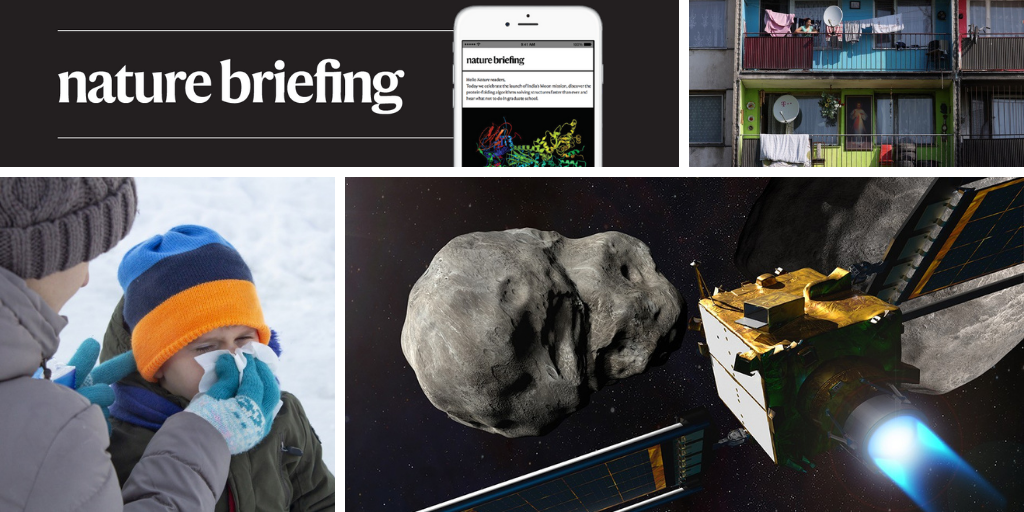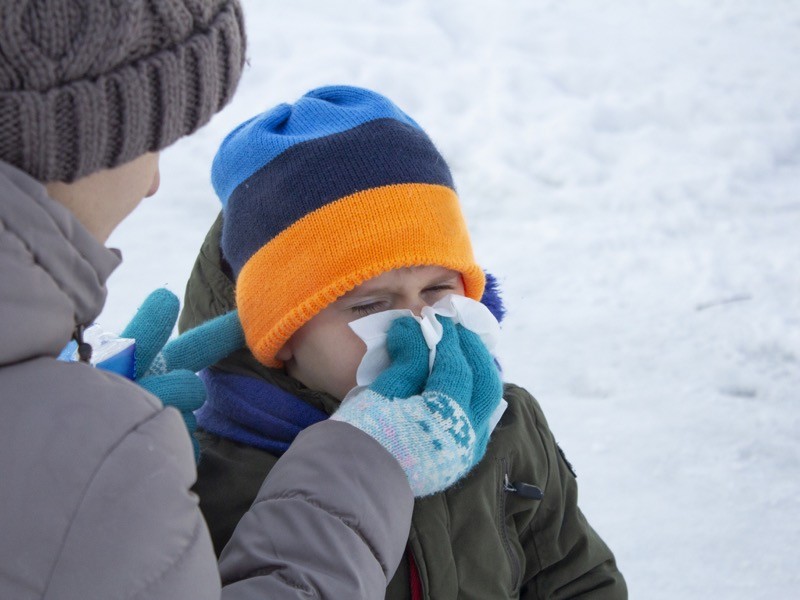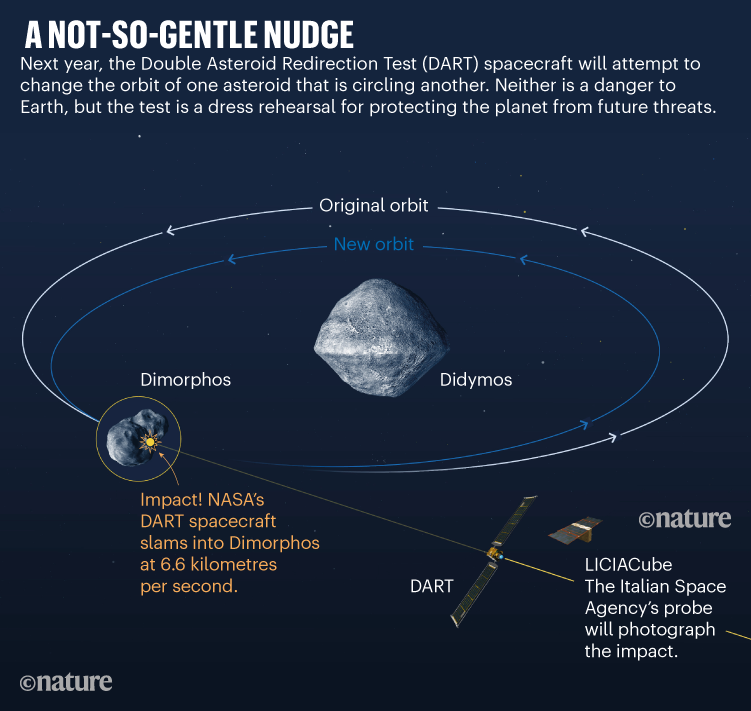Hello Nature readers, would you like to get this Briefing in your inbox free every day? Sign up here.
Evidence is building that people’s immune responses to COVID-19 could be affected by previous infections with common-cold coronaviruses. The phenomenon, evocatively dubbed original antigenic sin, has been documented for influenza: some people are better at fighting off seasonal flu when the strain of virus is similar to the first one they encountered in childhood. However, to what extent it affects people with COVID-19 — and whether it provides enhanced protection or hampers the immune response — is still unclear.
NASA will slam a multimillion-dollar spacecraft into an asteroid to test whether it is possible to change a space rock’s trajectory. This is only a test — the asteroid, Dimorphos, is not a threat to Earth. If the mission launches successfully next week, the Double Asteroid Redirection Test (DART) spacecraft will hit Dimorphos at 6.6 kilometres per second late next year. The impact should shrink Dimorphos’s orbit so that it orbits its companion asteroid at least 73 seconds faster than before — a change that will be detectable from Earth. A tiny probe funded by the Italian Space Agency will be launched from DART and will fly past to photograph the aftermath.
Loss of taste and smell are well-known symptoms of COVID-19 — but research now suggests that up to 10% of people infected also experience symptoms in their ears and eyes, such as sensitivity to light and hearing problems. “The data are growing to suggest that there are more neural consequences of this infection than we originally thought,” says molecular biologist Lee Gehrke.
Scientific American | 10 min read
Reference: Canadian Journal of Neurological Sciences paper & Journal of Ophthalmic & Vision Research paper
The spectacular KwaZulu-Natal sardine run, in which hundreds of millions of the fish congregate in the waters off the southern tip of Africa, might occur because the sardines get lost. A genomic analysis of hundreds of South African sardines suggests that fish adapted to the cold waters of the Atlantic Ocean hundreds of kilometres away stray too far into warm southern waters, where they unwittingly follow cold nutrient-rich upwellings, only to find themselves stranded in the hostile waters of the Indian Ocean. The phenomenon might be the largest ever example of an ‘ecological trap’, in which environmental cues lead organisms to settle in poor-quality habitats.
Scientific American | 5 min read
Reference: Science Advances paper
Features & opinion
An analysis of several hundred papers published between 1921 and 2021, and five databases, identifies multiple problems with the handling and interpretation of DNA data from Roma people — the largest minority group in Europe. In many cases, samples have been collected from people without adequate consent or any record of consent, write science historian Veronika Lipphardt and six colleagues. The analysis reveals that problems with DNA databases are more widespread and entrenched than many geneticists realize or acknowledge. “Geneticists in Europe need to face up to the fact that unethical research practices are still happening on home soil — not just on other continents,” say the authors.
Futures: science fiction from Nature
In this week’s helping of short stories for Nature’s Futures series:
• Two weary travellers receive post-apocalyptic hospitality from the last vestiges of a chef’s consciousness in ‘Welcome home’.
• ‘Star Corps Crew Manual Section 15-A37: On Mental Dislocation’ offers a supportive and mental-health-positive approach to crew members suffering from encounters with parallel universes, alien mind control and the temptation to time travel.
Andrew Robinson’s pick of the top five science books to read this week includes a subtle but revolutionary study of human history, a call for a fresh understanding of Alzheimer’s disease, and the climate costs of artificial intelligence.
When Alfonso Ferrández-Roldán set out to study the developmental pathways of a strange sea creature, he hoped to shed light on the origins of vertebrate animals. Instead, researchers found themselves investigating a strange case of missing genes. The Nature Podcast explores why gene loss could be a more significant factor in evolutionary processes than was previously thought.
Nature Podcast | 24 min listen
Subscribe to the Nature Podcast on Apple Podcasts, Google Podcasts or Spotify.






More News
Could bird flu in cows lead to a human outbreak? Slow response worries scientists
US halts funding to controversial virus-hunting group: what researchers think
How high-fat diets feed breast cancer